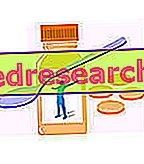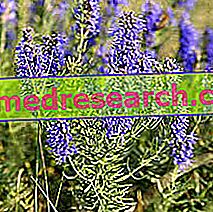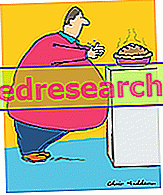OVESTIN ® is an estriol-based drug
THERAPEUTIC GROUP: Natural estrogens
IndicationsAction mechanismStudies and clinical effectiveness Usage and dosage instructionsWarnings Pregnancy and lactationInteractionsContraindicationsUndesirable effects
Indications OVESTIN ® - Estriol
OVESTIN ® is successfully used in the prevention and treatment of symptoms associated with estrogen deficiency typical of menopause.
Experimental tests have demonstrated its usefulness even in the case of prostatic dysplasia and vaginal disorders.
Mechanism of action OVESTIN ® - Estriol
OVESTIN ® is a drug based on estriol, a terminal metabolite of estrogens and in particular of 17 beta estradiol, with which it shares the underlying biological activity but with significant variations in pharmacokinetic and pharmacodynamic terms,
From the biological point of view estriol interacts with specific nuclear receptors through weak and therefore reversible bonds, regulating the gene expression of target cells through inhibition or induction mechanisms, thus modulating their biological activity.
However, due to the weak kinetics of receptor binding, the biological effects are transient and less prolonged than those described for 17 beta estradiol with a lower risk of developing side effects, especially at the endometrial level.
From the clinical point of view, on the other hand, taking OVESTIN ® results in a widespread improvement of post-climacteric symptoms characterized by neurological, vasomotor and metabolic disorders.
Studies carried out and clinical efficacy
1. ORAL ESTRICLE AND MULTIPLE SCLEROSIS
The treatment of multiple sclerosis based classically on anti-inflammatory and immunomodulatory therapeutic treatments has opened the door to the use of estrogens. Although the mechanism of action is not yet completely clear, the first results have been recorded encouraged in phase II clinical trials.
2. ORAL ESTROLEUM AND DEGENERATIVE PATHOLOGIES
An interesting study conducted on the longest-living population in the world that showed that oral estriol intake compared to other estrogens could significantly improve bone mineral density without altering the lipid profile. The preventive action on osteoporosis and on cardiovascular pathologies has proved useful in counteracting the most important diseases of old age.
3. ORAL ESTROLEUM and MAMMARY FIBROADENOMA
As is known, estrogens are able to increase the risk of breast cancer by reprogramming gene expression in favor of proliferation. In this experimental study the reduced transforming potential of estriol has been demonstrated compared to that of other estrogens, evaluating the expression levels of genes involved in cell proliferation.
Method of use and dosage
OVESTIN ® Estriol 1 mg Tablets:
in the treatment of climacteric and post-climacteric symptoms the effective dosage is the minimum one able to guarantee the therapeutic effect.
In most cases the therapeutic range is between 1 and 2 tablets per day.
Therapy must necessarily be defined and supervised by medical personnel in order to minimize possible side effects and optimize therapeutic ones.
Warnings OVESTIN ® - Estriol
Hormone replacement therapy must necessarily be defined and supervised by medical personnel in order to reduce the incidence of side effects and maximize therapeutic efficacy.
a careful initial clinical and medical examination and a series of periodic monitoring are necessary to monitor the correct progression of the therapy.
Particular attention must be paid to patients at risk, characterized by endometriosis, risk for thromboembolic or dependent estrogen diseases, hypertension, liver disease, diabetes, migraine, cardiovascular pathologies, liver and kidney pathologies, bronchial asthma and allergic diseases for which OVESTIN ® therapy it could even be contraindicated.
The correct doctor-patient collaboration, guaranteed by an effective communication, could be important in the timely recognition of the first side effects and in avoiding important pathological progressions.
PREGNANCY AND BREASTFEEDING
Given the absence of controlled clinical trials and given the biological effects of estrogens on the reproductive system and on the overall development of the unborn child, taking OVESTIN ® is contraindicated both during the whole pregnancy and in the subsequent period of breastfeeding.
Interactions
The high susceptibility of cytochromial enzymes, responsible for the metabolism of estriol, inducers and inhibitors, significantly increases the risk of pharmacologically relevant interactions.
The simultaneous intake of phenobarbital, phenytoin, carbamazepine, rifampicin, nevirapine and other active anti-infectives metabolised by cytochrome p450, could alter the pharmacokinetic properties of estriol by varying the therapeutic efficacy of OVESTIN ®
Contraindications OVESTIN ® - Estriol
OVESTIN ® is contraindicated in case of liver diseases, congenital enzyme deficiencies, endometriosis and related genital pathologies, cardiovascular pathologies, porphyria, endometrial and mammary carcinomas, hypersensitivity to the active ingredient or to one of its excipients and during the period of pregnancy and lactation.
Undesirable effects - Side effects
Although estriol has a different pharmacokinetic profile compared to 17 beta estradiol which reduces the risk of side effects, the adverse reactions described for this hormone are similar to those observed after taking estrogen.
In addition to acute reactions characterized by nausea, vomiting, diarrhea, abdominal cramps, increased breast tension, decreased appetite, and dermatological hypersensitivity reactions, there was an overall increase in the risk of developing endometrial and mammary carcinomas and cardiovascular diseases.
Note
OVESTIN ® is salable only under medical prescription.



